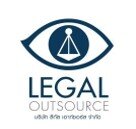ทนายความ การกำกับดูแลบริการทางการเงิน ที่ดีที่สุดใน พญาไท
แบ่งปันความต้องการของคุณกับเรา รับการติดต่อจากสำนักงานกฎหมาย
ฟรี ใช้เวลา 2 นาที
รายชื่อทนายความที่ดีที่สุดใน พญาไท, ประเทศไทย
เกี่ยวกับกฎหมายการกำกับดูแลบริการทางการเงินในพญาไท, ประเทศไทย
การกำกับดูแลบริการทางการเงินในประเทศไทยเป็นกรอบกฎหมายระดับชาติที่บังคับใช้อย่างทั่วถึง รวมถึงพื้นที่พญาไทในกรุงเทพมหานครด้วย
หน่วยงานหลักที่ดูแลคือ ธนาคารแห่งประเทศไทย (BOT) คณะกรรมการกำกับหลักทรัพย์และตลาดหลักทรัพย์ (SEC) และ สำนักงานคุ้มครองข้อมูลส่วนบุคคล (PDPC) ซึ่งลงลึกในแต่ละด้านของการเงินและการลงทุน
ในพื้นที่พญาไทธุรกิจการเงินส่วนใหญ่ต้องปฏิบัติตามกฎหมายกลาง พร้อมกับการประสานงานกับหน่วยงานท้องถิ่น เช่น สำนักงานเขตเพื่อประเด็นใบอนุญาตประกอบกิจการที่เกี่ยวข้องกับการเงิน
ทำไมคุณอาจต้องการทนายความ
คุณเป็นผู้ประกอบการที่เปิดสาขาให้บริการทางการเงินในพญาไทแล้วพบความสับสนในเงื่อนไขใบอนุญาตและการบังคับใช้อย่างละเอียด
คุณได้รับคำร้องเรียนจากลูกค้าในห้างแถบพญาไท เกี่ยวกับการโฆษณาหรือสัญญาทางการเงินที่อาจเข้าข่ายผิดกฎหมาย
มีเหตุสงสัยว่าข้อมูลลูกค้าถูกประมวลผลโดยไม่สอดคล้องกับ PDPA ซึ่งอาจนำไปสู่บทลงโทษหรือการฟ้องร้อง
คุณต้องปรับโครงสร้างบริษัทหรือย้ายผู้บริหารทางการเงินในพื้นที่พญาไท และต้องแน่ใจว่ากระบวนการสอดคล้องกับกฎหมาย
คุณถูกดำเนินคดีหรือตรวจสอบโดยหน่วยงานกำกับในกรุงเทพฯ และต้องการคำแนะนำเพื่อป้องกันข้อผิดพลาด
คุณวางแผนทำโครงการทุนร่วมกับพันธมิตรและต้องตรวจสอบข้อกำหนดด้านหลักทรัพย์ การเงิน และความโปร่งใสตามกฎหมาย
ภาพรวมกฎหมายท้องถิ่น
กฎหมายที่ใช้อย่างเป็นทางการในกรุงเทพฯ มักเป็นกฎหมายระดับชาติ แต่การบังคับใช้อยู่ภายใต้หน่วยงานกลางและการประสานงานกับสำนักงานเขตพญาไท
พระราชบัญญัติหลักทรัพย์และตลาดทุน พ.ศ. 2535 (Securities and Exchange Act) ควบคุมการประกอบธุรกิจและตลาดหลักทรัพย์ มุ่งเน้นความโปร่งใสและคุ้มครองผู้ลงทุน
พระราชบัญญัติคุ้มครองข้อมูลส่วนบุคคล พ.ศ. 2562 (PDPA) กำหนดหลักการประมวลผลข้อมูลส่วนบุคคลลูกค้า ต้องมีการขอความยินยอมและลบข้อมูลเมื่อผู้ใช้ร้องขอ
พระราชบัญญัติคุ้มครองผู้บริโภค พ.ศ. 2522 ส่งเสริมการคุ้มครองผู้บริโภคด้านการเงิน เช่น การโฆษณา การขาย และเงื่อนไขสัญญา
สรุป: กฎหมายการกำกับดูแลทางการเงินในกรุงเทพฯ เน้นการบังคับใช้โดยหน่วยงานกลาง เช่น SEC BOT และ PDPC ในขณะที่เขตพญาไททำหน้าที่สนับสนุนการดำเนินการในพื้นที่
ข้อมูลเพิ่มเติมเกี่ยวกับบทบาทและการบังคับใช้สามารถตรวจสอบได้ที่เว็บไซต์ทางการของหน่วยงานราชการต่อไปนี้
คำถามที่พบบ่อย
อะไรคือความแตกต่างระหว่างการขออนุญาตประกอบธุรกิจการเงินกับการอนุญาตสินเชื่อในพญาไท
การขออนุญาตประกอบธุรกิจการเงินเป็นการยืนยันว่ากิจการดำเนินงานถูกกฎหมายและสอดคล้องกับกฎหมายกลาง ส่วนการอนุญาตสินเชื่อมักเกี่ยวข้องกับการปล่อยสินเชื่อแก่ลูกค้าและต้องปฏิบัติตามข้อกำหนดที่เฉพาะ
อย่างไรฉันจะเริ่มหาทนายความด้านการกำกับดูแลในพญาไท
ค้นหาจากเครือข่ายทนายความที่มีคดีหรือประสบการณ์ด้าน BOT SEC PDPA ในกรุงเทพฯ ตรวจสอบโปรไฟล์ ความเชี่ยวชาญ และกรณีศึกษา แล้วนัดปรึกษาก่อนตัดสินใจ
เมื่อไหร่ควรเรียกทนายเมื่อมีข้อสงสัยด้าน PDPA ในพญาไท
เรียกทันทีเมื่อมีเหตุสงสัยว่าข้อมูลลูกค้าถูกประมวลผลผิดวัตถุประสงค์ หรือมีการละเมิดความเป็นส่วนตัว การปรึกษาล่วงหน้าช่วยลดความเสี่ยงต่อการฟ้องร้อง
ที่ไหนในกรุงเทพฯ ที่สามารถพบทนายความด้านการกำกับดูแลในพญาไทได้
แหล่งที่ดีที่สุดคือสำนักทนายที่มีสำนักงานในกรุงเทพฯและมีประสบการณ์ด้าน SEC BOT และ PDPA สามารถนัดปรึกษาแบบตัวต่อตัวได้ที่สำนักงานหรือผ่านวิดีโอคอล
ทำไม PDPA จึงสำคัญสำหรับธุรกิจการเงินในพญาไท
ธุรกิจการเงินต้องคุ้มครองข้อมูลส่วนบุคคลของลูกค้าอย่างเข้มงวด เพื่อหลีกเลี่ยงการถูกลงโทษและรักษาความไว้วางใจต่อผู้บริโภค
สามารถทนายช่วยอะไรในการยื่นขอใบอนุญาตและเอกสารที่เกี่ยวข้อง
ทนายช่วยตรวจสอบเอกสาร เตรียมข้อกำหนดทางกฎหมาย คัดกรองความเสี่ยง และระบุขั้นตอนที่ต้องดำเนินการ เพื่อให้กระบวนการเป็นไปอย่างราบรื่น
ควรเตรียมเอกสารอะไรบ้างก่อนพบทนายที่พญาไท
เตรียมแผนธุรกิจ แผนผังการดำเนินงาน เอกสารใบอนุญาตเดิม หากมี และข้อมูลลูกค้าที่เกี่ยวข้อง เพื่อให้ทนายเห็นภาพรวมการดำเนินงาน
อะไรคือค่าใช้จ่ายโดยทั่วไปในการให้คำปรึกษากฎหมายด้านการกำกับดูแลการเงิน
ค่าใช้จ่ายมักแบ่งเป็นค่าปรึกษาแบบชั่วโมงและค่าทนายขั้นตอน ควรขอประมาณค่าใช้จ่ายล่วงหน้าและสรุปค่าบริการในสัญญา
ระยะเวลาในการดำเนินคดีหรือกระบวนการออกใบอนุญาตมักใช้เวลานานแค่ไหน
ขึ้นกับความซับซ้อนของกรณีและหน่วยงานที่เกี่ยวข้อง โดยทั่วไปอาจอยู่ในช่วงหลายสัปดาห์ถึงหลายเดือน
คุณสมบัติที่ควรมองหากำลังหาทนายความในพญาไท
เลือกทนายที่มีประสบการณ์ตรงด้าน BOT SEC PDPA ในกรุงเทพฯ และเคยทำคดีหรือปรึกษาในเขตพญาไทหรือพื้นที่ใกล้เคียง
ความแตกต่างระหว่างทนายความกับที่ปรึกษากฎหมายด้านการกำกับดูแลในพญาไทคืออะไร
ทนายความมีอำนาจดำเนินคดีและยื่นคำร้องต่อศาล ส่วนที่ปรึกษากฎหมายให้คำแนะนำระดับนโยบายและไม่ดำเนินคดีเอง
รูปแบบใดที่ควรเลือกใช้ในการจ้างทนาย (ชั่วคราว/ระยะยาว) ในพญาไท
หากเป็นกรณีเดียวและไม่ต้องติดตามเป็นระยะ เลือกจ้างแบบชั่วคราวได้ แต่หากธุรกิจอยู่ในระยะยาวควรทำสัญญาให้ปรึกษาเป็นระยะ
ทรัพยากรเพิ่มเติม
ต่อไปนี้คือแหล่งข้อมูลทางการที่ให้ข้อมูลเกี่ยวกับการกำกับดูแลบริการทางการเงิน
- ธนาคารแห่งประเทศไทย (BOT) ข้อมูลเกี่ยวกับการกำกับสถาบันการเงินและแนวทางปฏิบัติ
- สำนักงานคณะกรรมการกำกับหลักทรัพย์และตลาดหลักทรัพย์ (SEC) ข้อมูลด้านหลักทรัพย์และตลาดทุน
- สำนักงานคุ้มครองข้อมูลส่วนบุคคล (PDPC) แนวทาง PDPA และการคุ้มครองข้อมูลลูกค้า
แหล่งข้อมูลอ้างอิง: BOT, SEC และ PDPC ให้ข้อมูลเชิงนโยบายและแนวทางปฏิบัติที่เกี่ยวข้องกับการกำกับดูแลทางการเงิน
ลิงก์ไปยังเว็บไซต์ราชการที่เกี่ยวข้อง
- ธนาคารแห่งประเทศไทย (BOT) - หน้าแรก
- สำนักงานคณะกรรมการกำกับหลักทรัพย์และตลาดหลักทรัพย์ (SEC) - ภาษาไทย
- สำนักงานคณะกรรมการกำกับและควบคุมสัญญาและการประกันภัย (OIC) - ไทย
- สำนักงานคุ้มครองข้อมูลส่วนบุคคล (PDPC) - PDPA
ขั้นตอนถัดไป
ระบุกลุ่มความต้องการทางการเงินของคุณอย่างชัดเจน เช่น ประเภทธุรกิจ ความเสี่ยง และเป้าหมายทางการเงินในพญาไท
ศึกษาแนวทางกฎหมายที่เกี่ยวข้องจาก BOT SEC และ PDPC เพื่อกำหนดกรอบงานที่ต้องการ
รวบรวมเอกสารหลัก เช่น แผนธุรกิจ ใบอนุญาตเดิม และข้อมูลลูกค้าเพื่อเตรียมให้ทนายเห็นภาพ
ค้นหาทนายความที่มีประสบการณ์ในกรุงเทพฯ โดยเฉพาะพญาไท และนัดปรึกษา 2-3 ราย
ขอประมาณค่าใช้จ่ายและข้อตกลงการให้บริการเป็นลายลักษณ์อักษร
เลือกทนายความที่เข้าใจข้อกำหนด PDPA และกฎระเบียบด้านหลักทรัย์และการเงิน
เริ่มการปรึกษา ดำเนินการตามขั้นตอนที่ทนายแนะนำ และประเมินความคืบหน้ากับทนายทุกเดือน
Lawzana ช่วยคุณค้นหาทนายความและสำนักงานกฎหมายที่ดีที่สุด ใน พญาไท ผ่านรายชื่อผู้เชี่ยวชาญด้านกฎหมายที่มีคุณสมบัติเหมาะสมที่คัดสรรและตรวจสอบล่วงหน้า แพลตฟอร์มของเรานำเสนอการจัดอันดับและโปรไฟล์โดยละเอียดของทนายความและสำนักงานกฎหมาย ช่วยให้คุณเปรียบเทียบตามสาขากฎหมาย รวมถึง การกำกับดูแลบริการทางการเงิน ประสบการณ์ และความคิดเห็นของลูกค้า
แต่ละโปรไฟล์ประกอบด้วยคำอธิบายเกี่ยวกับสาขากฎหมายของสำนักงาน รีวิวจากลูกค้า สมาชิกในทีมและหุ้นส่วน ปีที่ก่อตั้ง ภาษาที่พูด ที่ตั้งสำนักงาน ข้อมูลการติดต่อ การมีตัวตนบนโซเชียลมีเดีย และบทความหรือแหล่งข้อมูลที่เผยแพร่ สำนักงานส่วนใหญ่บนแพลตฟอร์มของเราพูดภาษาอังกฤษและมีประสบการณ์ทั้งในเรื่องกฎหมายท้องถิ่นและระหว่างประเทศ
ขอใบเสนอราคาจากสำนักงานกฎหมายชั้นนำ ใน พญาไท, ประเทศไทย — รวดเร็ว ปลอดภัย และไม่ยุ่งยาก
ข้อจำกัดความรับผิดชอบ:
ข้อมูลที่ให้ไว้ในหน้านี้มีวัตถุประสงค์เพื่อเป็นข้อมูลทั่วไปเท่านั้นและไม่ถือเป็นคำแนะนำทางกฎหมาย แม้ว่าเราจะพยายามตรวจสอบความถูกต้องและความเกี่ยวข้องของเนื้อหา แต่ข้อมูลทางกฎหมายอาจเปลี่ยนแปลงได้ตามกาลเวลา และการตีความกฎหมายอาจแตกต่างกันไป คุณควรปรึกษาผู้เชี่ยวชาญด้านกฎหมายที่มีคุณสมบัติเหมาะสมเพื่อขอคำแนะนำเฉพาะสำหรับสถานการณ์ของคุณเสมอ
เราปฏิเสธความรับผิดทั้งหมดสำหรับการกระทำที่ทำหรือไม่ทำตามเนื้อหาในหน้านี้ หากคุณเชื่อว่าข้อมูลใดไม่ถูกต้องหรือล้าสมัย โปรด contact us และเราจะตรวจสอบและแก้ไขตามความเหมาะสม








